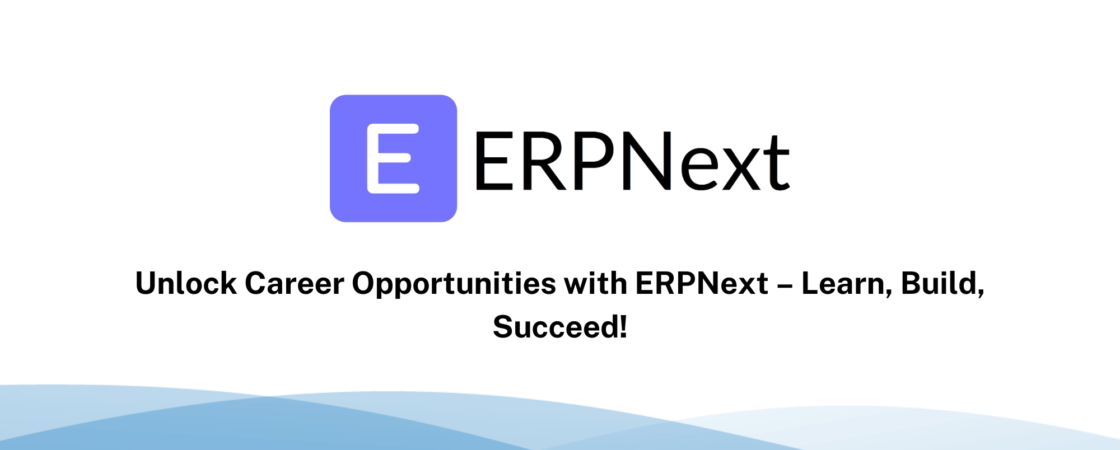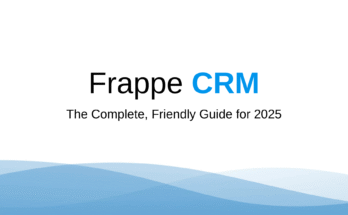Introduction
In today’s fast-moving business environment, organizations require efficient enterprise resource planning (ERP) systems to manage operations effectively. While SAP, Odoo, and Microsoft Dynamics dominate the ERP space, an open-source alternative has been gaining traction—ERPNext.
If you are looking for an ERP solution that is scalable, cost-effective, and easy to customize, ERPNext is worth considering. This guide will walk you through everything you need to know about ERPNext, from its features, benefits, and implementation to how it can boost your career opportunities in ERP consulting and development.
What is ERPNext?
ERPNext is an open-source, web-based ERP system designed for small and medium-sized businesses (SMBs) as well as large enterprises. Developed by Frappe Technologies, ERP offers a modular structure that allows businesses to manage accounting, human resources, inventory, manufacturing, and other business processes—all in a single platform.
Unlike proprietary ERPs that come with high licensing costs and vendor lock-in, ERPNext provides businesses with a flexible, scalable, and cost-effective alternative.
Key Features of ERPNext
1. Accounting & Finance
- Full-fledged double-entry accounting system.
- Bank reconciliation, invoicing, and expense tracking.
- Multi-currency support and financial reporting.
2. Inventory & Supply Chain Management
- Real-time tracking of stock levels and warehouses.
- Integration with purchase and sales orders.
- Barcode scanning and batch/serial number tracking.
3. Human Resource Management (HRMS)
- Employee database and payroll processing.
- Leave and attendance tracking.
- Performance appraisal and recruitment management.
4. Manufacturing & Production Planning
- Bill of Materials (BOM) and production orders.
- Workstation and capacity planning.
- Integration with supply chain for raw materials.
5. Customer Relationship Management (CRM)
- Lead and opportunity tracking.
- Customer communication and automated follow-ups.
- Quotation and sales pipeline management.
6. E-commerce & Retail
- Point of Sale (POS) integration.
- Multi-channel sales support.
- Customer portals and automated order processing.
7. Project & Task Management
- Task assignment and progress tracking.
- Budgeting and resource allocation.
- Agile project management support.
8. Customization & Developer-Friendly API
- Built on Frappe Framework for easy customization.
- Low-code environment for developing custom apps.
- RESTful APIs for third-party integrations.
Why Choose ERPNext Over Other ERP Systems?
1. Open-Source & Cost-Effective
Unlike SAP or Microsoft Dynamics, ERPNext is completely open-source, which means you don’t have to pay hefty licensing fees.
2. Cloud & On-Premise Deployment
Businesses can self-host ERPNext on their own servers or opt for cloud-hosted solutions like Frappe Cloud or AWS, Azure, and DigitalOcean.
3. Community Support & Active Development
With a growing global community of developers and users, ERPNext is continuously evolving. The Frappe Forum and GitHub repositories offer extensive resources for troubleshooting and feature enhancements.
How to Get Started with ERPNext?
1. Try ERPNext Demo
You can experience ERPNext for free by accessing the official demo.
2. Installation Methods
ERPNext can be installed using multiple methods:
- Manual installation on Linux servers.
- Docker-based deployment.
- Frappe Cloud (Managed Hosting).
- Bitnami Stack for easy one-click setup.
3. Learn ERPNext Development & Customization
If you are a developer, ERPNext offers a powerful low-code framework to build applications. You can start learning through the Frappe Framework Documentation.
Career Opportunities in ERPNext
As businesses continue to adopt ERPNext, career opportunities in ERP consulting, development, and implementation are growing rapidly.
1. ERP Consultant
- Works with businesses to analyze, implement, and optimize.
- Requires expertise in business processes, finance, and supply chain management.
- Average salary: $50,000 – $120,000 per year depending on experience.
2. ERPNext Developer
- Builds custom ERP applications and integrations.
- Skills needed: Python, JavaScript, REST API, and Frappe Framework.
- Average salary: $60,000 – $130,000 per year.
3. ERP Administrator
- Manages ERP deployments, security, and maintenance.
- Involves database management, server configuration, and system updates.
- Average salary: $45,000 – $100,000 per year.
Conclusion
ERPNext is a powerful, flexible, and cost-effective ERP solution suitable for businesses of all sizes. Whether you’re an entrepreneur, business owner, or developer, learning ERPNext can significantly boost your career opportunities in the tech and business world.
With an active community, easy customization options, and no licensing fees, ERPNext is a future-ready ERP system that businesses should consider.
You can also explore more posts.


